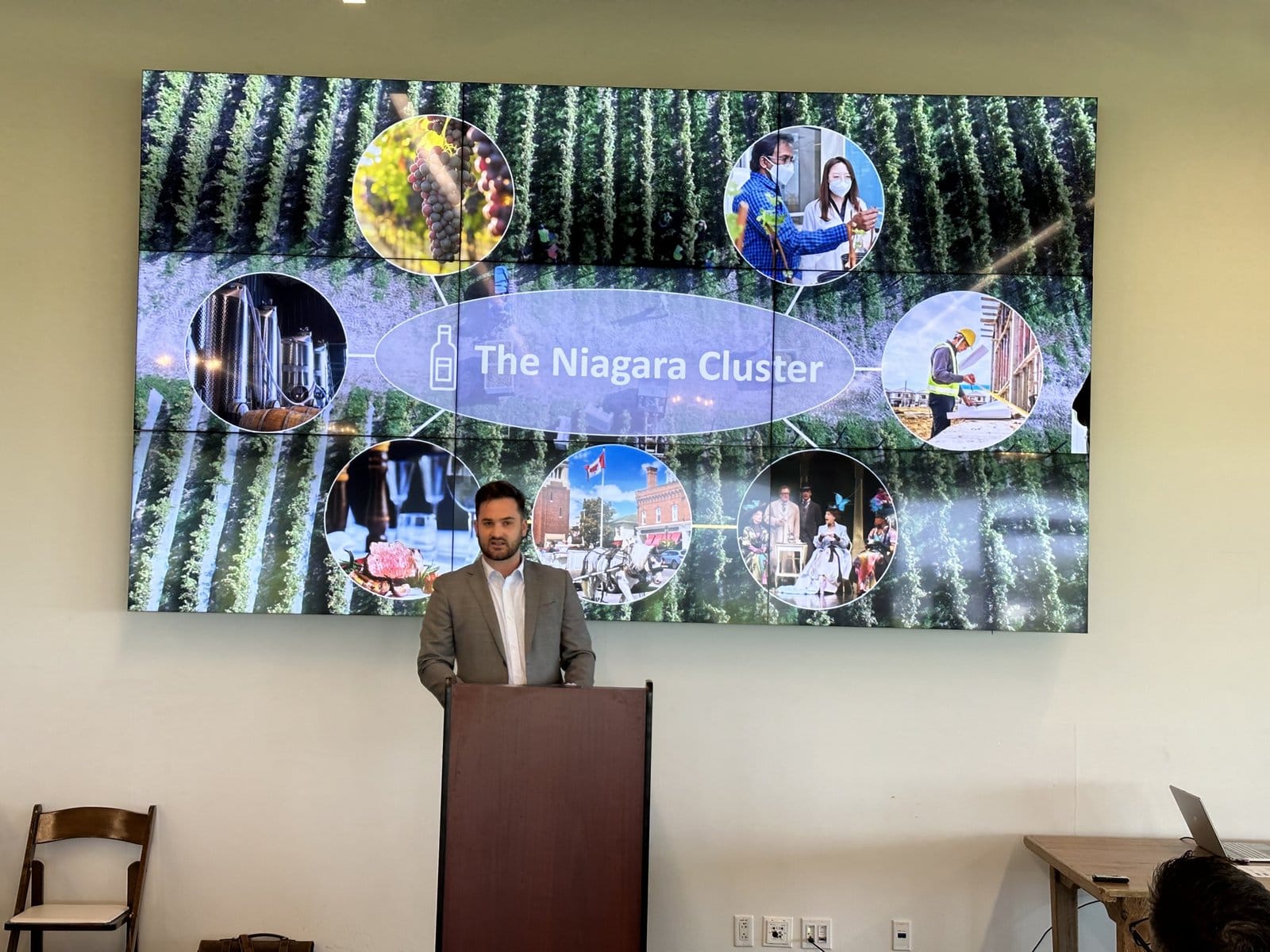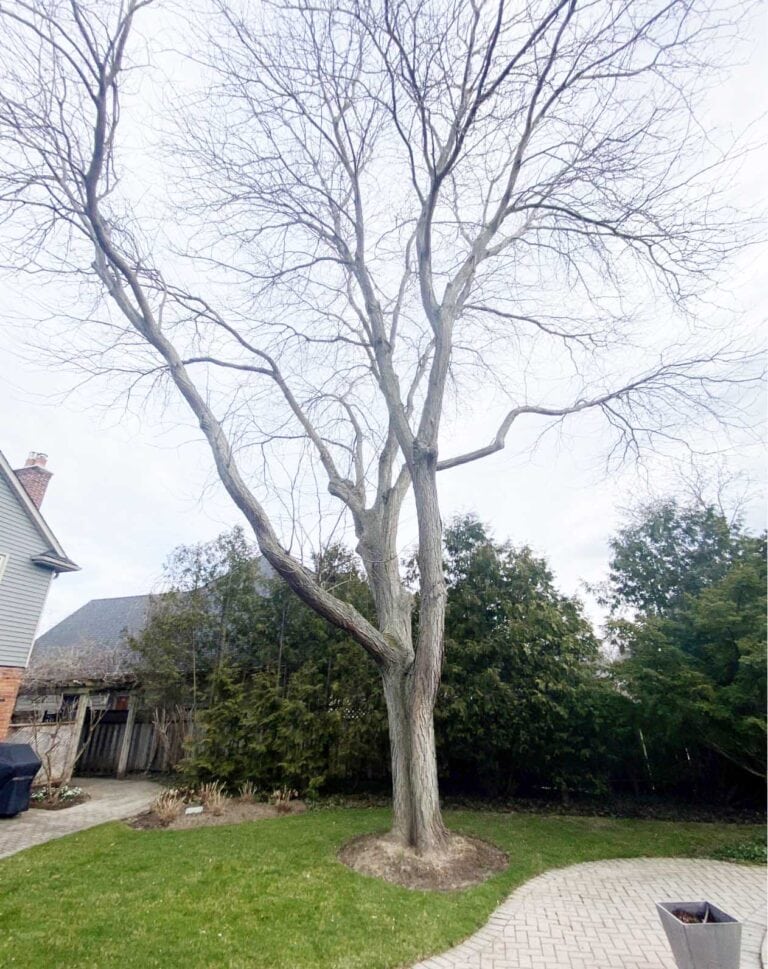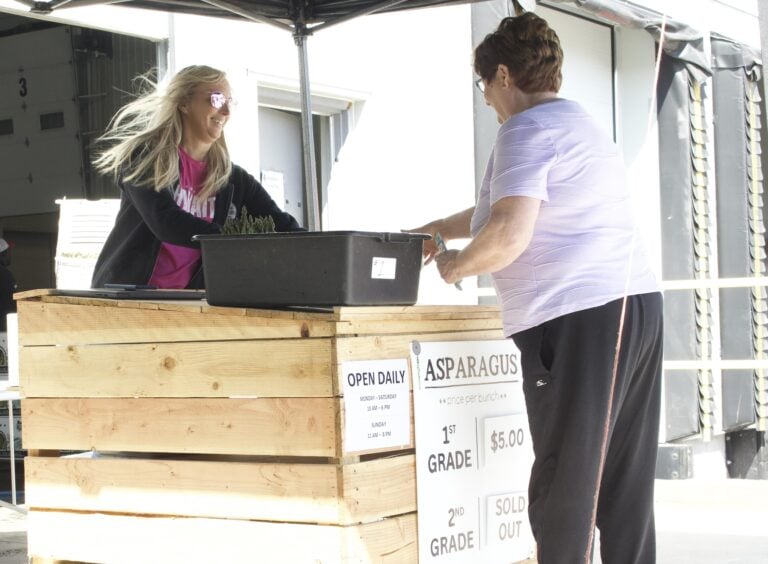Key Niagara wine advocates are optimistic that the provincial government is finally getting the message that the industry is on the cusp of greatly expanding its economic influence in Ontario, but needs help to make it a reality.
That was the message from industry leaders during a NOTL Chamber of Commerce forum last week, the most recent in a series of presentations outlining the economic benefits of growing Niagara’s wine sector – and the crucial support needed to make it happen.
The gathering was attended by a mix of local and regional politicians and leaders from business, tourism, theatre and wineries.
There’s a concerted campaign underway to champion the idea of creating a premium wine industry to drive dramatic economic development with benefits to related sectors including culture, food, hospitality, and tourism.
Industry leaders have made a series of presentations and speeches, released two major reports, and met repeatedly with government leaders to build momentum.
And they think it’s working.
Greg Berti, Andrew Peller Ltd.’s vice-president of economic development, said these leaders are now going to government meetings “with one voice” on the subject.
“They’re paying attention, they’re more than intrigued by this concept. I see that as something important. And they’re appointing people within government to address this issue,” he said.
Del Rollo, Arterra Wines’ vice-president of corporate affairs, said he’s optimistic and feels there’s a “shift change” on the matter.
“I think the government will come forward to help us and I think once everyone starts to recognize that we can work together we can do some amazing things together,” he said.
John Peller, president and CEO of Andrew Peller Ltd., kicked it all off in February with a speech describing what he called a grand vision for Niagara: to create a world-class destination building on Niagara’s natural advantages including wine and food, history and theatre, culture and parks.
“There is no other industry that has a greater growth impact on economies than premium wine-based economies,” Peller said.
On the heels of that speech, the Wine Marketing Association of Ontario laid out its 2030 vision, predicting the number of visitors to the province’s wine regions will rise to 3 million a year by 2030, from 2.6 million now.
The report also projects a 75 per cent increase in capital investment by Ontario wine producers and growth of more than 40,000 direct and indirect jobs in Ontario’s grape and wine production, tourism and hospitality sectors.
Then in July, a Deloitte Canada report called Uncork Ontario quantified the opportunity of what it calls the Niagara cluster of related sectors, including food, tourism and culture, with the wine industry at the centre, showing it could drive $8 billion to the GDP in the next generation.
Ontario Craft Wineries, Tourism Partnership of Niagara and Wine Growers Ontario jointly commissioned Deloitte’s report.
It describes the scope of the opportunity, as well as the conditions needed to achieve it, many of which need more active support from the provincial government.
Grady Peller, senior manager of corporate strategy for Andrew Peller Ltd., said the Niagara wine industry has an “incredibly unique” opportunity in front of it.
The “cluster” in which it exists cannot be artificially created, he pointed out, thanks to the specific geographic and climate conditions in Niagara that enable the growing of grapes for premium wine.
“We have direct access to a world-class tourism asset in Niagara Falls and a huge tourism population, upwards of 40 million people within a one- or two-hour drive,” he said.
On top of that, he added, there’s a growing base of food and hospitality experiences and cultural entertainment such as the Shaw Festival.
It’s an $8-billion opportunity, but there are certain conditions that need to be in place in order to achieve it. The Deloitte report identified those by looking at best practices in successful wine regions around the world.
First, Peller said, is “dominating” the domestic market: Ontario’s share of its own market is about 33 per cent, compared to places such as Australia, France and Italy, which have between an 80 to 95 per cent share of their own markets, he said.
He also addressed the 6.1 per cent tax Niagara wineries have to pay on wine specifically sold at wineries: he said the industry needs to ensure there are “supportive policies” to incentivize investment, not “punitive tax policies” that make it different for those in the industry to “generate a return” on their investments.
“We need to work with our food, culture, hospitality and tourism partners to create connected experiences across the region that bring to life the best of all the amenities that Niagara has to offer,” he said.
“And then lastly, it’s key that we need to ensure that we’re working with the provincial government so that we have dedicated championing and support to ensure that we’re being set up for success,” he added.
Industry leaders have long called for changes to taxation, better marketing and distribution arrangements, but this campaign has brought more voices together.
“First and foremost, we’ve been working with every part of the cluster to build a coalition of the willing that will support us on this journey. And it’s amazing to me to see what has happened,” said Rollo.
“It’s not just the wine industry. It has broad-based support behind it. And that’s what’s really different this time. When a lot of people come together to speak, governments pay attention, so they’re taking it really seriously now,” added Berti.
Both Berti and Rollo said they are optimistic that the 6.1 per cent tax could be repealed soon.
“I can just say that the vibe we’re getting at our meetings suggests, ‘OK, good things are going to happen,’ and that would be really good,” said Berti.
Rollo called on those present to do their part to spread the word and build support, by talking to others and joining a letter-writing campaign to the provincial government – to show that the Niagara region stands behind this push to boost the industry.
“We need to have that groundswell of individuals who are really passionate about this,” he said.
“Right now we’re at that tipping point. I’m optimistic, I think it’s going to go the right way.”










